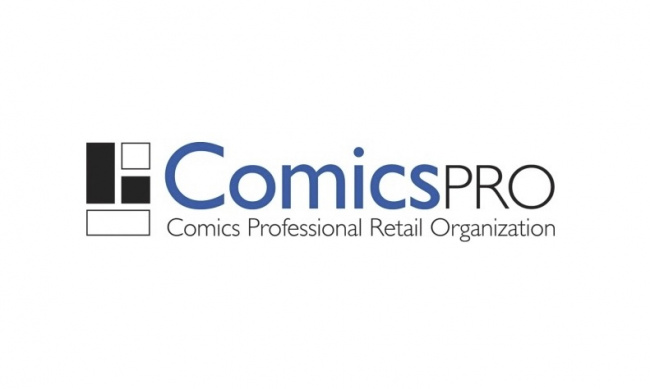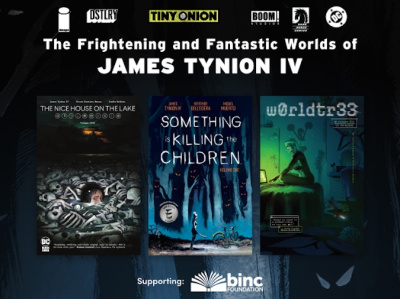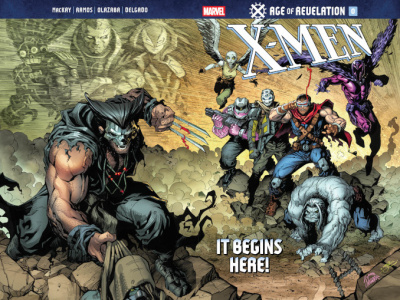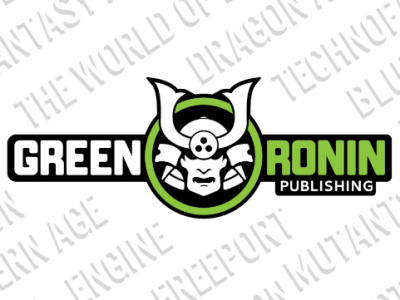Rob Salkowitz, ICv2: Now that ComicsPRO is in the books, can you give your quick top line impressions of this year’s event and the general mood of retailers at the start of 2023?
Jenn Haines, ComicsPRO. Heading into the meeting, there was a lot of pent-up frustration. The fragmentation of distribution made it difficult for retailers to know where to direct their concerns. There are multiple processes and you have to learn how each one works and add that into your week.
We did a lot of work heading into the meeting to orient that into a more constructive point of view. As difficult as the industry is right now, [distributors and publishers] are working to change that, even if it’s not as fast as we might like.
So we came with constructive feedback and data to support the issues, because what we need is hard numbers. People need to see how choices they are making directly impact their business. And the result was probably the most positive ComicsPRO we’ve had in a long time. There was a lot more dialogue and none of the public fights and yelling we’ve seen in the past. The mood was so positive, I was completely overwhelmed.
What was the impact and importance of meeting in person this year after a few virtual years with the pandemic?
Part of the positivity was the result of us coming together and seeing each other for the first time in a long time. It helped us remember that we’re a community. I think a lot of retailers are coming away from this meeting feeling a lot more comfortable and confident in where the industry is going.
What were some of the highlights or best-received announcements from publishers and distributors?
The biggest focus was on data. We did a big session on how to get consistent metadata, which is critical for how we present and promote new material. We had a data summit attended by people from the POS side, the distributor side and publishing partners to see what’s going on and how to get more consistency and transparency. Publishers are heavily invested in that, especially the Big 2, who have corporate reporting requirements. They need sales charts that show how they are doing relative to each other and the rest of the market. Diamond used to handle all of that, but now that they are no longer in a position to do so, ComicsPRO can step up and be that neutral party to bring everyone together.
Frankly no big content announcements leapt out. I think manga is one area where all our members see the advantages of growth, but it can be difficult for stores that don’t have an expert on hand. So there was a lot of excitement around Kodansha and Viz, especially Kodansha’s upcoming Night of the Living Cat. That just seems like a surefire hit that has the formula for success.
I was also impressed with what Kyle Higgins is doing around his Radiant Black universe, bringing in other media and doing additional pieces like a podcast or radio station. The curation of a whole universe like that seems cool.
Vault’s key store program, where they offer perks and promos for stores that buy Vault products, was also welcome news. So is BOOM! Studios giving us more BRZRKR. Generally, publishers recognize that leaning into the tried-and-true material will help restore some stability to the market.
What are the big areas of focus moving forward?
Getting the data sorted out, as we discussed earlier, is a big one. Also, gradually moving from sell-in sales to sell-through data is going to be huge. I don’t want to get people’s hopes up as it might take us a couple of years, but progress is being made and ComicsPRO is in a great position to push it forward.
Another area, frankly, is making faster progress working with Diamond, not just on the POS software (which badly needs a refresh), but also around terms of sale, which is very much a gray area. The terms of who qualifies for what level of discounts isn’t documented anywhere. We very much appreciate they are using discretion to move retailers up into higher discount levels, but if there are no clear terms, that can become problematic.
Diamond did make a move on the terms of shipping, going down 20% in April and 20% again in June, which is fabulous. But they also talked about how they are moving offices and consolidating space, saving them a bunch of overhead that allows them to cut the shipping rates. For a lot of retailers, that confirmed suspicions that Diamond was marking up the shipping to cover their other business costs, and the concession is just to give people the price they should have gotten all along. So that announcement didn’t go down as well as it could have.
Retailers are happy to see those costs coming down, and I think that’s directly due to pressure from ComicsPRO for the last few years.
Has the retail side of the business become too complex and burdensome for new entrants into the market? Do you need decades of experience and all kinds of arcane knowledge to succeed?
It’s almost easier for new people to get in right now. As an industry, we get hung up on how things used to be, but new people just come into the world as it is. Take distribution: most retail deals with multiple distributors. Having just one is really weird and the people who have only dealt with Diamond are the ones struggling.
The thing we most need is resilience. That flexibility to pivot is what makes us special, and what makes comic stores feel like a home away from home. No one gets into this to get rich. It’s hard work, but creating that experience is what makes it worthwhile.
What is the overall outlook for the year ahead?
Sales-wise, I think 2023 will be comparable to 2021 and 2022, give or take a little bit. The last couple of years have been stable and I expect more of that. But for retailers, we’ll be seeing the same sales but higher costs, and that makes things hard.
I think we may lose some wonderful stores this year. I hope not, but think it may happen. People have done an extraordinary job coping with the stresses of the pandemic and some people have just had enough. They need to do what’s best for them, of course.
In terms of manga, the market is still growing and that will bolster other parts of the industry. Yes, we’re competing with Barnes & Noble and other big box stores, but they can’t compete with us on passion and the personal touch. They just can’t pivot and adapt the way a small retailer can. If stores can shift their mindset to one where we can take advantage of the boom, where it’s not a burden or risk, it can be guaranteed sales.
The opinions expressed in this column are solely those of the writer, and do not necessarily reflect the views of the editorial staff of ICv2.com.
Rob Salkowitz (@robsalk) is the author of Comic-Con and the Business of Pop Culture.









